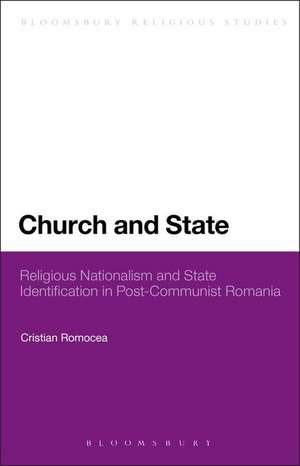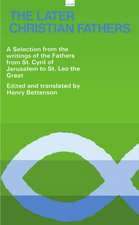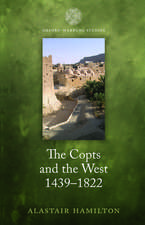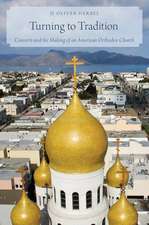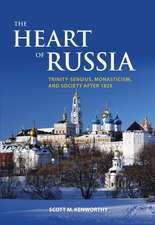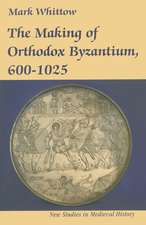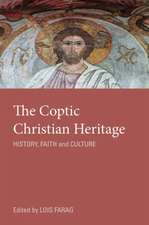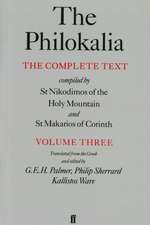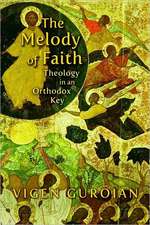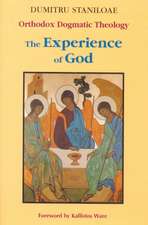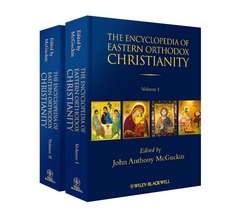Church and State: Religious Nationalism and State Identification in Post-Communist Romania
Autor Cristian Romoceaen Limba Engleză Paperback – 21 noi 2012
| Toate formatele și edițiile | Preț | Express |
|---|---|---|
| Paperback (1) | 209.56 lei 6-8 săpt. | |
| Bloomsbury Publishing – 21 noi 2012 | 209.56 lei 6-8 săpt. | |
| Hardback (1) | 832.17 lei 6-8 săpt. | |
| Bloomsbury Publishing – 20 apr 2011 | 832.17 lei 6-8 săpt. |
Preț: 209.56 lei
Nou
40.10€ • 41.87$ • 33.19£
Carte tipărită la comandă
Livrare economică 04-18 aprilie
Specificații
ISBN-10: 1441182012
Pagini: 272
Dimensiuni: 156 x 234 x 14 mm
Greutate: 0.39 kg
Editura: Bloomsbury Publishing
Colecția Bloomsbury Academic
Locul publicării:London, United Kingdom
Caracteristici
Notă biografică
Cristian Romocea is Assistant Professor at Evandeoski Teoloski Fakultet Osijek, Croatia.
Cuprins
Preface \ Abbreviations \ Introduction \ 1. The Orthodox Church in Post-Communist Romania \ 2. German Protestantism and Nazism in Third Reich Germany \ 3. From Caesaropapism to Religious Nationalism \ 4. Nationalist Orthodoxy and the Romanian State \ 5. The Marxist-Orthodox Symbiosis \ 6. The Theological Error of Nationalism: Barth and Staniloae \ Conclusion: Towards a Theology of 'Permanent Revolution' \ Bibliography \ Index
Recenzii
Descriere
Twenty years have passed since the fall of the Iron Curtain, yet emerging democracies continue to struggle with a secular state which does not give preference to churches as major political players. This book explores the nationalist inclinations of an Eastern Orthodox Church as it interacts with a politically immature yet decisively democratic Eastern European state. Discussing the birth pangs of extreme nationalist movements of the twentieth century, it offers a creative retelling of the ideological idiosyncrasies which have characterized Marxist Communism and Nazism. Cristian Romocea provides a constant juxtaposition of the ideological movements as they interacted and affected organized religion, at times seeking to remove it, assimilate it or even imitate it. Of interest to historians, theologians and politicians, this book introduces the reader, through a case study of Romania, to relevant and contemporary challenges churches worldwide are facing in a context characterized by increased secularization of the state and radicalization of religion.
